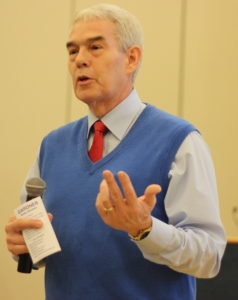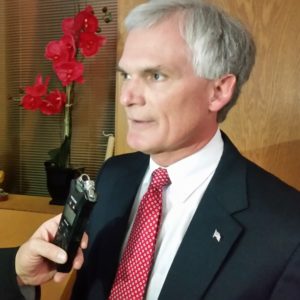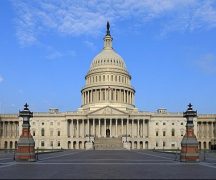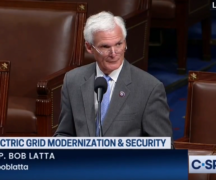By DAVID DUPONT
BG Independent News
Two Republican lawmakers are condemning a Trump Administration proposal to drain funding from the Great Lakes Restoration Initiative.

Randy Gardner
Ohio Senator Randy Gardner (R-Bowling Green), the Ohio Senate Majority Floor Leader, in a statement Tuesday (March 7) stated: “If federal officials have new ideas to make sure our healthy Lake Erie efforts are more efficient and effective, then let’s get together and have that discussion. But a reduction of this magnitude is just not explainable and defensible unless it is replaced with a new strategy that can truly make a difference. Lake Erie is one of America’s great natural assets. I join many members of Ohio’s bipartisan congressional delegation in support of restoring these funds.”
The president’s proposed budget cuts funding for the initiative from $300 million to $10 million.
The initiative, which first received funding in 2010, supports projects aimed at reducing runoff from cities and farms, clean up toxic pollution in the lakes and combating invasive species, including the Asian carp
The reduction in funding for the initiative goes along with dramatic decreases in appropriations for the Environmental Protection Agency and the National Oceanic and Atmospheric Administration.
U.S. Rep. Bob Latta issued a statement: “Protecting our Great Lakes is not only critical to the region, it’s important to the entire country. That’s why I authored the Drinking Water Protection Act, which was signed into law last Congress. It’s also why I’m also continuing to work on legislation to improve water infrastructure.

Bob Latta
“While Congress still hasn’t received the President’s official budget, it’s important to note that the document is the start to the Congressional budget process, not the end,” the statement continued. “Over the previous years, Congress has restored funding in its budget for the GLRI that the Obama Administration had proposed cutting.”
The Obama Administration had proposed a $50 million reduction in funding to the initiative.
Bowling Green State University political scientist Russell Mills said that a president’s budget proposal never gets through the congressional appropriations process intact.
“What people really need to watch is what’s going on in the (House) Appropriations Committee,” he said. “That’s where the cuts will be made.”
Mills said he expected the “draconian cuts” to the EPA and NOAA. Those, he said, are tied to those agencies efforts to combat global warming. The attack on the Great Lakes initiative, though, was surprising since it has had since its founding bipartisan support.
The issue of Lake Erie water quality became critically urgent in August, 2014, when toxic algae made the water in much of the Toledo area undrinkable.
The president’s budget proposal is more a statement of the administration’s positions and priorities, but in the House committees should get to work this spring with the aim of starting to write the actual bills in April and May.
Mills, who worked on the budget at the Federal Aviation Administration, questioned whether those in administration even know what the initiative is.
While this may be seen as a low-ball opening in a negotiation, Mills said, such a drastic proposal can undermine the credibility of the administration with Congress.
The Great Lakes Restoration Initiative is good for politicians, he said. It’s a way for them to claim credit for being serious about water quality.





